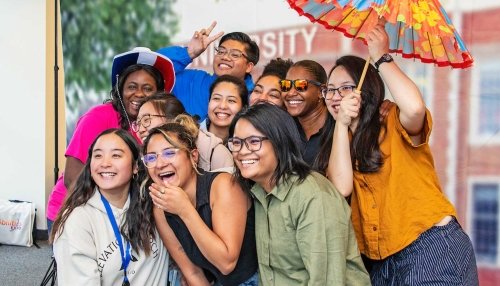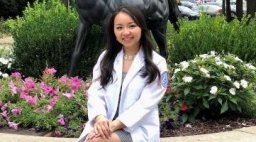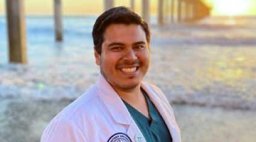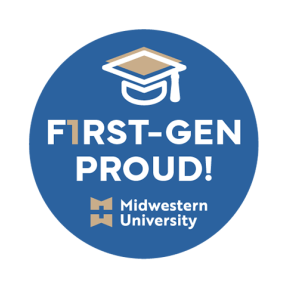Our Diverse Family
The Campus Voices page highlights, honors, and celebrates the individual stories and variety of lived experiences, backgrounds, values, and worldviews of our Midwestern University students, faculty, staff, and alumni. The diversity of our academic family leads to broadened perspectives, innovation, and understanding - values that are foundational aspects of healthcare education.
Share Your Story
Would you like to share your story? If so, please email us at OMACO@midwestern.edu. Include your full name, credentials (if applicable), title (faculty/staff) or class year (students/alumni), and College/Program/Department affiliation.
Student & Alumni Stories
Our Trailblazing First-Generation Community at Midwestern University
Tri-Alpha National Honor Society for First Generation Students
Student Inductees to the Tri-Alpha National Honor Society for First Generation Students share their successes and challenges as first-generation students
Our Stories
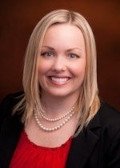
Professor, Department of Pharmacy Practice, College of Pharmacy, Glendale Campus
My job is a pharmacist. I share this field with over 300,000 other pharmacists. My career is a clinician educator, specifically a pharmacist educator. I share this field with almost 7K other pharmacy faculty members at 143 colleges and schools of pharmacy, including Midwestern University (MWU) College of Pharmacy. My calling, however, is a rare disease advocate. I share this passion with nearly 50 other Rare Action Network (RAN) State Ambassadors. The Arizona RAN is powered by the National Organization for Rare Disorders. My calling to be a rare disease advocate was inspired by one person, our newborn niece, who grew her wings to fly before our hearts were ready.
Over half of those affected by rare diseases are children. Many rare diseases are life-limiting and associated with increased likelihood of premature mortality. Any disease, disorder, illness, or condition affecting fewer than 200K people is considered rare. Despite the diversity of more than 7,000 rare diseases affecting nearly 350 million people worldwide, this population experiences inequities in healthcare. Individuals with rare diseases face obstacles such as lack of knowledge and awareness of rare diseases amongst healthcare professionals, delays in accurate diagnosis, difficulties in access to treatment, lack of availability of orphan drugs, and undue social exclusion.
Midwestern University is committed to building a more diverse, more inclusive academic community, and promoting equity for all. As a practicing hospital pharmacist and pharmacist educator at MWU, I have been supported in my professional initiatives to narrow the gaps in healthcare that individuals within the rare disease community face. MWU College of Pharmacy supported my academic choice to create a 1.5-credit hour elective course entitled “Rare and Interesting Diseases” that increases awareness of rare diseases and availability of orphan drugs amongst future healthcare professionals. MWU has also supported local and state advocacy efforts with policy makers to increase awareness of rare diseases and make access to healthcare for patients with rare diseases a high priority.
A well-recognized quote with the rare community is, “Alone we are rare. Together we are strong.” As a hospital pharmacist, pharmacist educator at MWU, and rare disease advocate, my teaching philosophy is, “While alone we are rare. Together we can care to share about rare. We are Midwestern strong.”
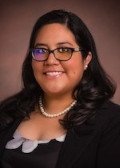
Assistant Vice President, Office of Multicultural Affairs and Community Outreach
Chilean poet Pablo Neruda once wrote that one can miss out so much from life by not changing one’s old routine, by not traveling to new places, by not reading different things, or by not talking to different people. To me, embracing multiple worldviews and perspectives helps us live a more meaningful life, and leads to wonderful, enriching experiences. I am proud to be part of the Midwestern University academic family, where we embrace the multifaceted backgrounds of our students, faculty, staff, and alumni as institutional strengths, and as a source of innovation and creativity.
I grew up in beautiful Mexico, where I learned about family values, perseverance, and the immense value of education. Both of my grandfathers were orphans who had to fend for themselves at a very early age, and my two grandmothers were children of immigrants from Spain and Lebanon, who had to leave school so they could work and help their families. While none of them had the opportunity to go to college (or even finish elementary school), they made sure my parents pursued higher education. Because of their caring legacy, I was inspired to always do well in school, earn a law degree in my home country, and later, pursue a Master’s degree here in the U.S. While it wasn’t possible for me to continue practicing law upon relocating to the States, I’ve enjoyed every turn my professional path has taken. I joined Midwestern University in 2008, and witnessing its rapid, impressive development has been an outstanding experience and a source of great pride.
Every day, I have the opportunity to collaborate with a wide array of talented, interesting, and friendly individuals, and those interactions inspire me to continue learning new things. Our welcoming organizational culture translates into practices that recognize both individual and team effort, reward dedication, and hard work, and acknowledge that employees’ well-being is directly related to the growth of the University.
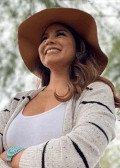
Alumna, Arizona College of Optometry
I was born at the Phoenix Indian Medical Center and grew up in Phoenix and on and off on the Navajo Reservation. My Native American family is from the Black Mesa area. Because my heritage is a strong advocate of spiritual healing, my heritage teaches and believes spiritual health to be essential in healing your mind, body, and spirit. Therefore, I try to reconnect with nature often and perform ceremonies to keep my balance. I always knew I would have a career in the healthcare field and made it my goal to work at the Phoenix Indian Medical Center, where I was born. This place symbolizes so much for my family and me. Growing up, this was the only place we knew to receive medical care – a dependable institution that was always there for the health of the Native American community. I thought I wanted to be a nurse, a pediatrician, or an OBGYN, then found that I really enjoyed Optometry. Being accepted to the program of optometry in Arizona was such a blessing. The Arizona College of Optometry was relatively new at that time, and my parents were hesitant on my decision to continue my education at a “newer” school. Dr. Donald Jarnagin, the Dean at that time, made me feel welcome. From the moment I met Dr. Jarnagin, I knew Midwestern was the place for me. Midwestern gave me a home, a new family, and a “we care” vibe that gave me the psychological strength to succeed in the program. I believe I have a more positive outlook towards coping with illness, pain, and life stresses. I tend to project this towards my patients. I use my clan and kinship terms with my patients to make them feel welcome and more at ease. This helps my patients to trust me as a healthcare provider.
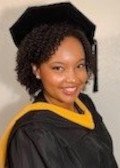
Alumna, Doctor of Clinical Psychology Program, College of Health Sciences, Glendale Campus
When I began my educational journey at Midwestern University (Glendale, AZ), I was introduced to Minority Students in Medicine (MSM) through a few friends of mine after they attended the campus club fair. As a Clinical Psychology student, I initially thought MSM was only open to the AZCOM students. After attending the first meeting, I was happy to hear that it was a club that welcomed students from all of Midwestern’s academic departments. Since then, MSM became an important part of my time at Midwestern University. It opened an opportunity for me to socialize with other minorities of many diversity factors as well as serve the community through volunteer events. Such community service events included a panel discussion at South Mountain High School, volunteering with foster care children at Arizonans for Children, and several additional fundraisers. Community outreach has always been a passion of mine and I was happy to be a part of an organization that helped fulfill it. My gratification with what MSM stands for led me to hold a leadership position in the club as Secretary during 2019-2020. Collaborating with other organizations such as the Gay-Straight Alliance for fundraisers, and VOICE (Veterinarians as One Inclusive Community for Empowerment) in organizing the Midwestern University Outdoor Vigil for George Floyd was amazing as well. Overall, MSM has been and continues to be an enjoyable element of my MWU experience.
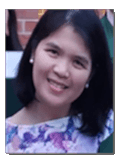
Senior Research Specialist, Biomedical Sciences Program, College of Graduate Studies, Glendale Campus
From the moment I stepped into the ground of Midwestern University in 2008, I already felt the warmth and welcoming atmosphere. I smelled the lushness, serenity, and triumph in every corner of the campus. This compelling experience assured me that I came to the right place where students, faculty, staff, and the entire MWU community are in harmony and mindful of the value of equal opportunity.
I believe each of us has a significant role to play--by keeping the right attitude toward one another through giving respect, showing kindness, care, recognizing uniqueness and capabilities without prejudices. Every member of this community is worthy of our time and attention. No matter how busy we are, we need to make time to listen with open minds and hearts to motivate one another, and seek God's wisdom for extraordinary guidance to respond to everyone's best.
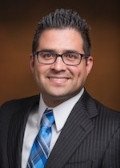
Vice President, Operations
My family taught me the importance of offering respect and acceptance to others and celebrating the rich dimensions that reside within each individual.
Our mission to achieve the highest standards of academic excellence relies on community and collaboration. My role in leading project teams provides me with opportunities to promote teamwork across disciplines, programs, and departments. I enjoy the teamwork atmosphere that we create when planning new initiatives. Through our actions, we affirm the University’s stance regarding mutual respect and compassionate human principles as fundamental to our mission.

Alumna, Doctor of Occupational Therapy Program, College of Health Sciences, Downers Grove Campus
Before my acceptance to Midwestern University OTD program, I desired to attend a school that fully accepted who I was as a human being. As a first-generation graduate student in my family, I have had obstacles and challenges to overcome in order to get where I am today. The faculty at Midwestern University welcomed me with open arms by fully getting to know my story and who I am as an individual. Early on in my education at Midwestern, I specifically remember having a class entirely devoted to different cultures; this class focused on the way in which people may accomplish the same task, however, highlighted different ways a task can be performed based on one’s upbringing. Now, as I am on my Level II-B fieldwork placement, I am able to understand individuals’ unique way of completing tasks based on their unique backgrounds and life experiences. As a future occupational therapist, I will always incorporate and apply this knowledge of diversity with the clients that I serve.

